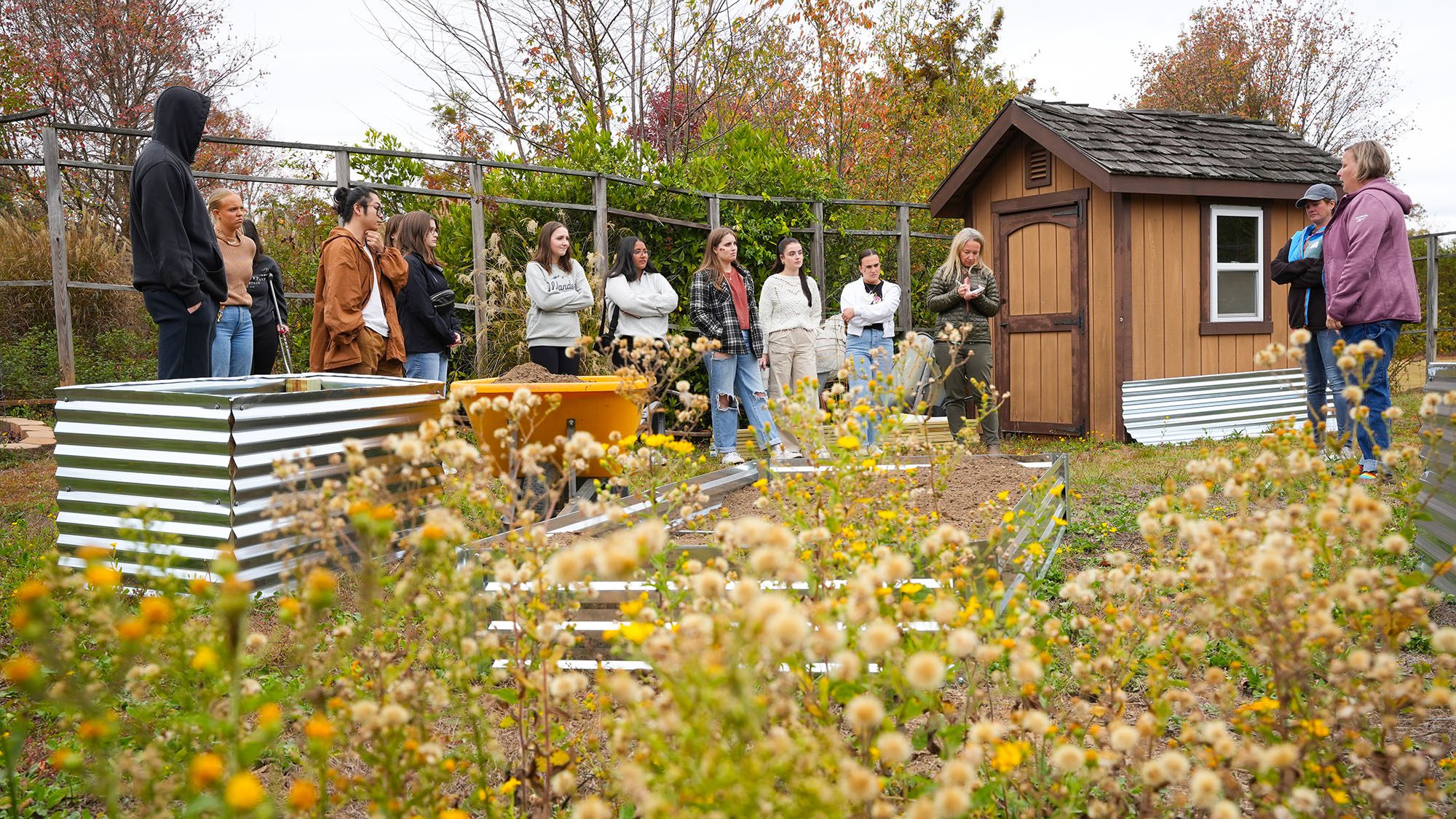Field trips engage seminar students with lived experience of autism

Cate Simkins ’24 might have found her next internship during a visit to a farm.
It may not be a typical venue for a psychology major’s internship, but the 21-acre Trailhead Community Farm School just outside Travelers Rest, South Carolina – about three miles from Furman’s back gate – is not a typical farm. The students toured the classrooms, garden and playground areas designed as a day program for middle and high school students with autism spectrum disorder (ASD) and attention deficit hyperactivity disorder. And although Simkins is looking at other sites for a potential internship, the school “is definitely on my list,” she said.
The farm school was one of several visits that took Simkins and her classmates out of the classroom and into the community in Fall 2023 during PSY 404, a seminar on autism led by Erin Hahn, professor and chair of psychology.
Through those visits, “I’ve gotten a much deeper understanding of autism in a clinical sense, but also in a social and theoretical sense,” said Simkins, who plans to pursue a Ph.D. in school psychology. “Getting out in the community on these field trips has been so helpful.”
The human side
Most Tuesdays during the fall semester are dedicated to a lab session, consisting of a field trip to a site providing services related to ASD or a guest speaker or film exploring the subject. Thursdays are devoted to class sessions on campus, in which the students discuss recent lab experiences and review the assigned research articles.
Balancing the academic study of ASD in the classroom with in-person interaction and high-impact learning experiences in the community creates lasting memories the students will leave Furman with, said Hahn.
“I bet that every single one of them will remember the experiences they had during lab,” she said. “I want them to leave understanding the human side of autism and not just the faceless data collected by researchers.”
The labs for the seminar have varied over the years, said Hahn, but they always include opportunities for students to engage directly with individuals who have ASD. This year, the class spent a day volunteering at the weekend program at Camp Spearhead in Greenville County, interacting with campers aged 8 to 88 with autism and other disabilities. Activities for the campers included a barbecue lunch, learning about coastal animals from the experts at Roper Mountain Science Center, and a dance party before returning to their families.
“Students are usually very nervous about this activity,” said Hahn, “but it almost always ends up being one of their favorite activities.”
Lived experience
Camp Spearhead was indeed a highlight of the seminar for Isabella Horton ’24, who plans to enter a Ph.D. program in clinical psychology.
“Seeing different representations of autism and how so many people with different types of disabilities came together and interacted in such a positive way was really impactful,” she said. “It helped me understand their lived experience. You wouldn’t get that in a classroom.”
Another lab took the students to a costume party with the Spectrum Theatre Group, a troupe of young adults on the autism spectrum. The schedule also included a visit to the Mary Sunshine House in Central, South Carolina, a specialized community for adults with ASD.
PSY 404 is one of several capstone course options offered to psychology majors to fulfill a degree requirement. Other psychology capstone courses cover subjects such as brain imaging, the placebo effect, aging and eating disorders.
The autism seminar can serve students who are still exploring career options as well as those who have their futures mapped out, said Hahn.
“Students who have a career path already lined up can use the flexibility of the class to consider the ways in which their neurodiversity might intersect with their career,” she said. “Students who are undecided about their vocation will encounter a lot of different careers in the context of the course that they may not have known about before.”